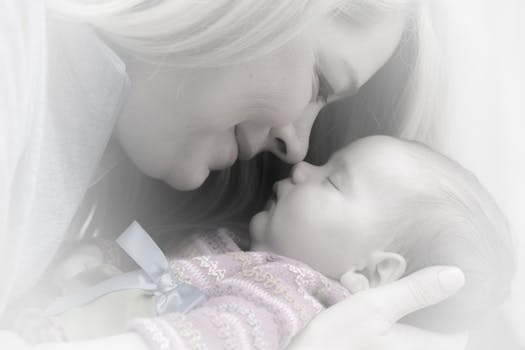There is a fine line between being overly worried about your unborn baby and symptoms of a mental pregnancy problems. Unfortunately, many a mother-to-be is neglected in a sense that her state isn’t recognized on time. Even women themselves are having issues determining whether they are simply overreacting due to the surge of hormones, or if there is something else going on that could be potentially harmful to both her and the baby.
For those future mommies who have been fighting with a mental disease for quite some time, the period of those 9 months is even more stressful. Every woman is entitled to bear a child and they can’t help but feel apprehensive about the entire process, to put it mildly. Nevertheless, if one is fighting depression during that time, a question and doubt often arise whether using antidepressants is recommendable. The very thought of medications harming the baby is often a reason enough to stop taking them. However, untreated depression can have grave consequences for both the mother and the baby.

In this case, it’s obligatory to consult with the doctor before even becoming pregnant. If you are already with the baby, do not over-stress. There are some antidepressants on the market which are recommendable for soon-to-be mothers. According to one report from Caring for Kids , babies are affected by them, but without some major consequences. The newborn whose mum was taking antidepressants may have symptoms such as fast breathing, irritability, poor feeding, and tremors. Luckily, these are expected to be mild and to be over promptly (normally within 2 weeks).
Moreover, remember that if you’re struggling with similar problems, even when you don’t have a condition, you shouldn’t be shy away from reaching out for mental health pregnancy support by experts on maternal issues.
Still, there is an extensive list of mental problems which can leave a mark on a child’s future development. Once again, it all comes down to stress and its massive influence on our lives. The consequences of physical underdevelopment in the womb have already been proven. Such children have a higher risk of getting diabetes or suffering from coronary heart disease. Recently, evidence has been collected that prenatal stress plays a huge role in neuro-development in the brain. Even worse, the outcomes can have both physical and neuro developmental consequences, from asthma to lower cognitive development and anxiety.
If a mother is stressed, the baby has a 12% more risk of developing emotional or behavioral problems. It all has to do with the stress hormone –cortisol. After eliminating all the external factors (mother’s behavior after the birth, and father’s role, too), it still appears that cortisol has a detrimental effect on the child’s development later in life. Animal studies have shown that high cortisol levels are linked to later lower cognitive functions.
What happens is that when a mother-to-be is anxious, the enzyme in the placenta which breaks down cortisol decreases, allowing more cortisol to enter the womb. If a mother experienced intense stress prior to giving birth, there are lots of serious issues which may follow. Firstly, there’s a risk of premature birth. Secondly, there are possibilities of hyperactivity, irritability, colicky, and having a lower weight than the average.
The question arises: if the state is really so serious, what should a pregnant mother do about mental pregnancy problems?

First, remember that we are all individuals and that everybody is different. You can see that just by comparing the pregnancy symptoms. Hardly any two women are experiencing completely the same conditions, are they? Therefore, how much cortisol is produced by your body and what happens with it afterward can only be determined by careful medical examination. Everything else is just a wild guess. For this reason, you shouldn’t cause yourself extra stress by worrying about worrying.
Also, no matter the cause of stress, it’s a fact that we all react differently to it. One woman’s disaster is another’s woman no big deal. You shouldn’t feel discouraged with stories of other pregnant women who had similar problems as you. No one is to tell why it was so stressful for them, or how their body reacted. Not to mention, hardly any such story is 100% true, is it?
On the other hand, feel free to ask for professional help and advice whenever you feel the need for it. Being a mum is wonderful, but it also implies having the greatest responsibility in your life, so you shouldn’t shy away from professional consulting at any time.
[lamoud_Pregnancy_Calculator]My content[lamoud_Pregnancy_Calculator]





